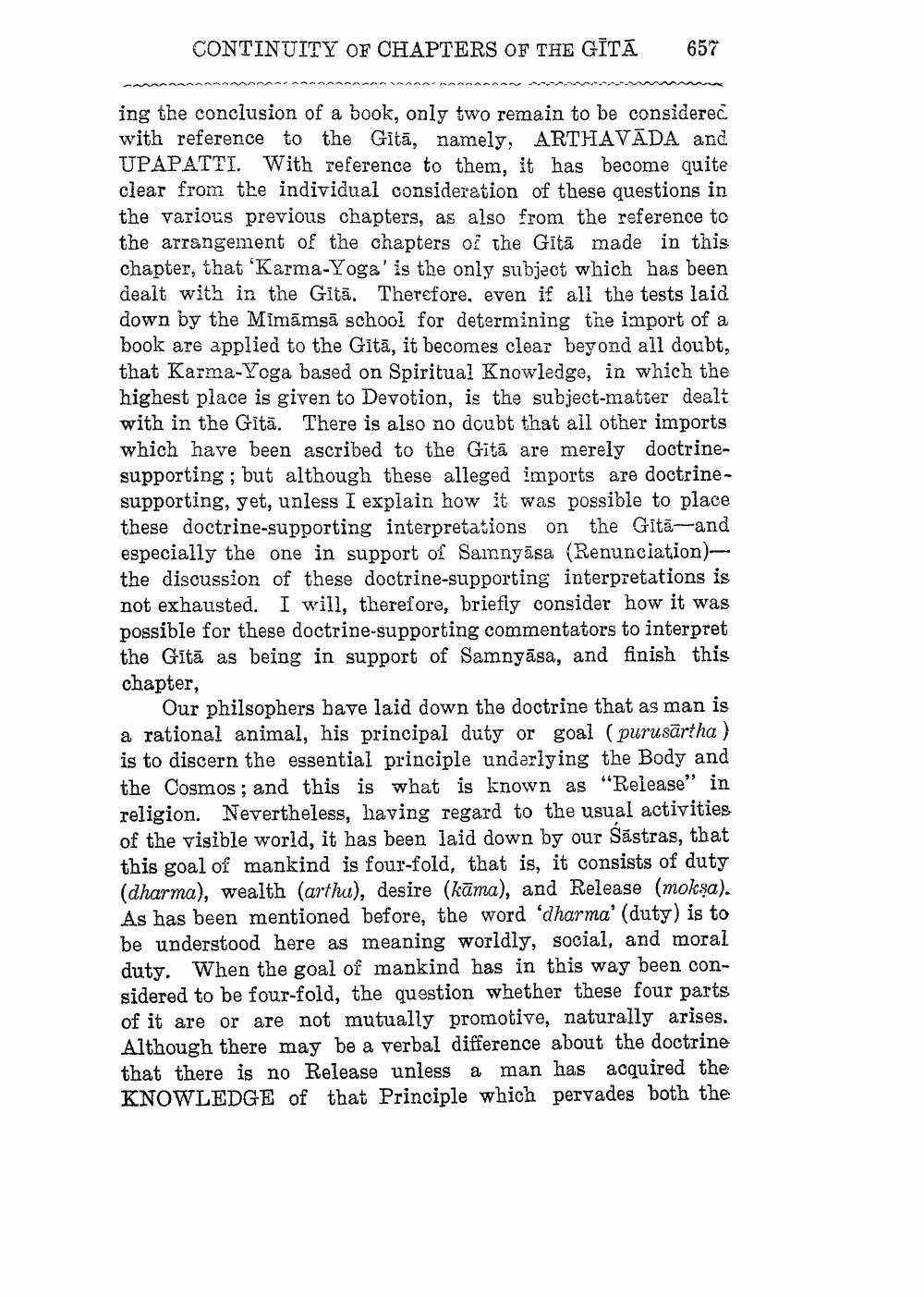________________
CONTINUITY OF CHAPTERS OF THE GITĀ.
657
ing the conclusion of a book, only two remain to be considered with reference to the Gitā, namely, ARTHAVĀDA and UPAPATTI. With reference to them, it has become quite clear from the individual consideration of these questions in the various previous chapters, as also from the reference to the arrangement of the chapters of the Gītā made in this chapter, that 'Karma-Yoga' is the only subject which has been dealt with in the Gitā. Therefore, even if all the tests laid down by the Mimāmsā school for determining the import of a book are applied to the Gītā, it becomes clear beyond all doubt, that Karma-Yoga based on Spiritual Knowledge, in which the highest place is given to Devotion, is the subject matter dealt with in the Gitā. There is also no doubt that all other imports which have been ascribed to the Gitā are merely doctrinesupporting ; but although these alleged imports are doctrinesupporting, yet, unless I explain how it was possible to place these doctrine-supporting interpretations on the Gitaand especially the one in support of Sainnyāsa (Renunciation - the discussion of these doctrine-supporting interpretations is not exhausted. I will, therefore, briefly consider how it was possible for these doctrine-supporting commentators to interpret the Gītā as being in support of Samnyāsa, and finish this chapter,
Our philsophers have laid down the doctrine that as man is a rational animal, his principal duty or goal (purusārtha ) is to discern the essential principle underlying the Body and the Cosmos; and this is what is known as "Release" in religion. Nevertheless, having regard to the usual activities of the visible world, it has been laid down by our Săstras, that this goal of mankind is four-fold, that is, it consists of duty (dharma), wealth (arthu), desire (kāma), and Release (moksa). As has been mentioned before, the word 'dharma' (duty) is to be understood here as meaning worldly, social, and moral duty. When the goal of mankind has in this way been considered to be four-fold, the question whether these four parts of it are or are not mutually promotive, naturally arises. Although there may be a verbal difference about the doctrine that there is no Release unless a man has acquired the KNOWLEDGE of that Principle which pervades both the




